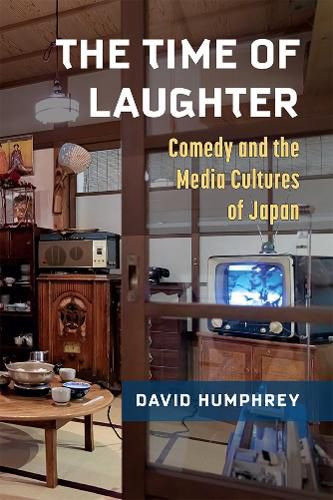Readings Newsletter
Become a Readings Member to make your shopping experience even easier.
Sign in or sign up for free!
You’re not far away from qualifying for FREE standard shipping within Australia
You’ve qualified for FREE standard shipping within Australia
The cart is loading…






From broadcast to social media, comedy plays a prominent role in Japan's cultural landscape and political landscape. The Time of Laughter explores how comedy grew out of the early days of television to become a central force in shaping Japanese media over the past half-century. Comedy and its impact, David Humphrey argues, established a "time of laughter" in the media of the late twentieth and early twenty-first centuries in Japan. Through masterful interrogation of Japanese televisual archives and media discourse, Humphrey demonstrates that the unique temporality of laughter has had a profound role in the cultural atmosphere of Japan's recent past. Laughter both complemented and absorbed the profound tensions and contradictions that emerged in Japanese television. Joyous and cacophonous, reaffirming and subverting, laughter simultaneously alienated and unified viewers. Through its exploration of the influence of comedy and the culture of laughter, The Time of Laughter presents a vibrant new take on Japan's recent media history.
$9.00 standard shipping within Australia
FREE standard shipping within Australia for orders over $100.00
Express & International shipping calculated at checkout
From broadcast to social media, comedy plays a prominent role in Japan's cultural landscape and political landscape. The Time of Laughter explores how comedy grew out of the early days of television to become a central force in shaping Japanese media over the past half-century. Comedy and its impact, David Humphrey argues, established a "time of laughter" in the media of the late twentieth and early twenty-first centuries in Japan. Through masterful interrogation of Japanese televisual archives and media discourse, Humphrey demonstrates that the unique temporality of laughter has had a profound role in the cultural atmosphere of Japan's recent past. Laughter both complemented and absorbed the profound tensions and contradictions that emerged in Japanese television. Joyous and cacophonous, reaffirming and subverting, laughter simultaneously alienated and unified viewers. Through its exploration of the influence of comedy and the culture of laughter, The Time of Laughter presents a vibrant new take on Japan's recent media history.